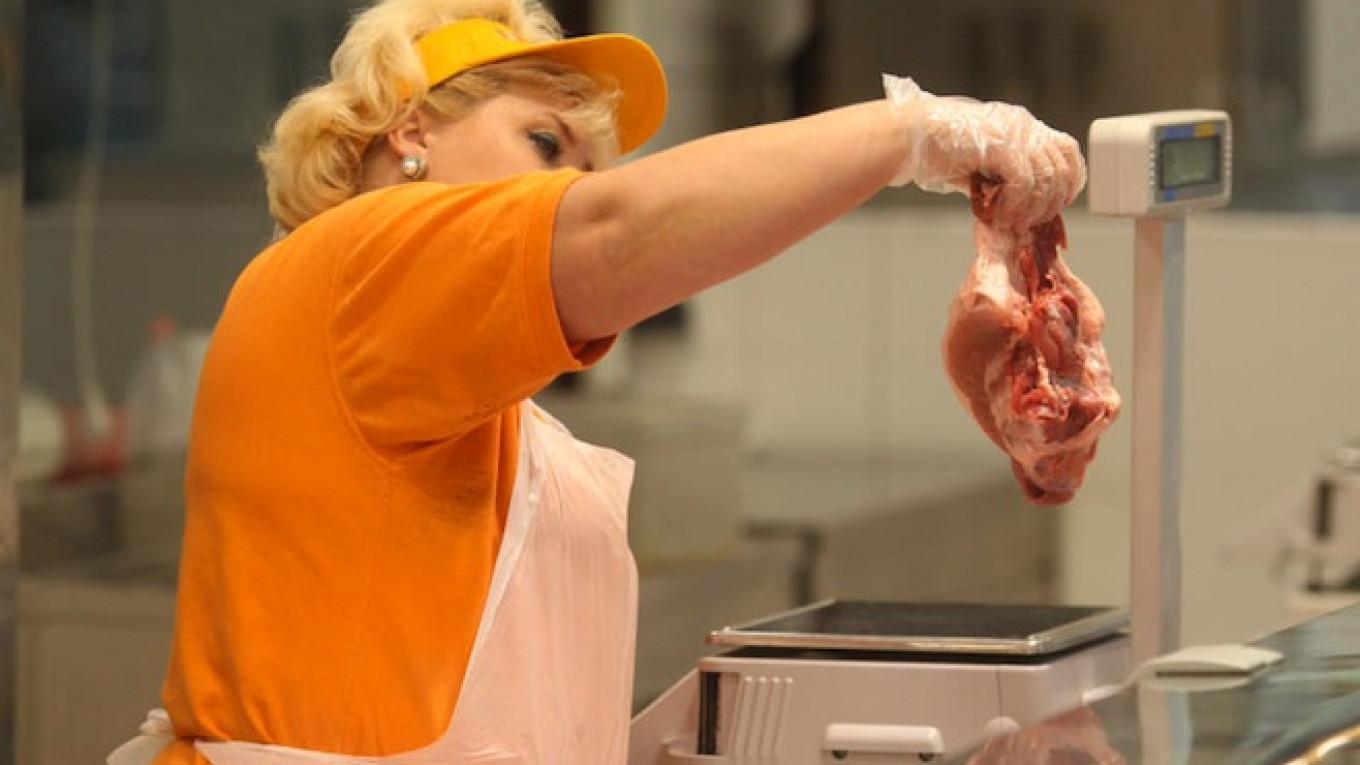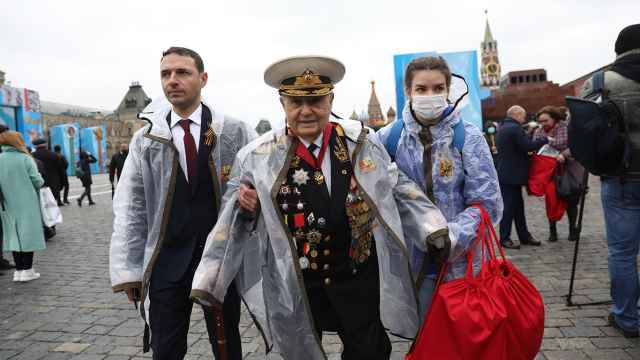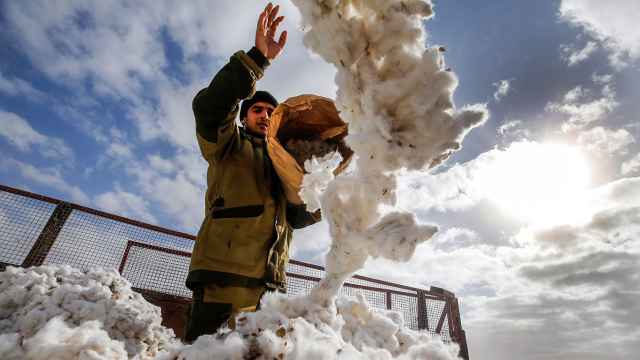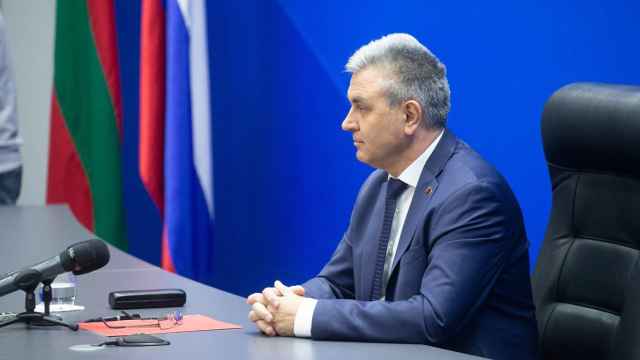Russia could face a deficit of meat and dairy products next year as a result of the country's embargo on certain imported food and raw materials, the RIA Novosti news agency reported, citing the Audit Chamber, a government spending watchdog.
There is a risk that certain banned food items will not be fully replaced by domestic products, the Audit Chamber said in a report, according to RIA Novosti.
Furthermore, Russia risks a food deficit as it often uses foreign raw materials in food production, the Audit Chamber warned. Russia introduced a ban on many Western food items and raw materials in August last year in response to sanctions imposed by the EU and the U.S. on Russia over its involvement in the Ukraine crisis. In June, Russia prolonged the embargo for another year in response to the extension of sanctions by Western countries.
Russia could also face falling demand for domestic products, the report said. Many high-quality food products have been banned and Russian consumers will not be satisfied with domestic versions of lower quality, according to the Audit Chamber.
Last month, Russia's agricultural watchdog Rospotrebnadzor said 80 percent of the cheese in Russian supermarkets was fake as it contains a significant amount of palm oil.
In total, 25 percent of all dairy products in Russian shops are counterfeit, an inspection by Rospotrebnadzor revealed.
A Message from The Moscow Times:
Dear readers,
We are facing unprecedented challenges. Russia's Prosecutor General's Office has designated The Moscow Times as an "undesirable" organization, criminalizing our work and putting our staff at risk of prosecution. This follows our earlier unjust labeling as a "foreign agent."
These actions are direct attempts to silence independent journalism in Russia. The authorities claim our work "discredits the decisions of the Russian leadership." We see things differently: we strive to provide accurate, unbiased reporting on Russia.
We, the journalists of The Moscow Times, refuse to be silenced. But to continue our work, we need your help.
Your support, no matter how small, makes a world of difference. If you can, please support us monthly starting from just $2. It's quick to set up, and every contribution makes a significant impact.
By supporting The Moscow Times, you're defending open, independent journalism in the face of repression. Thank you for standing with us.
Remind me later.






